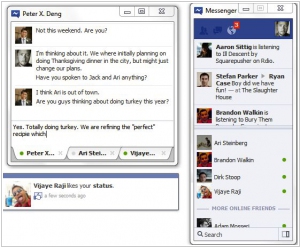Facebook Messenger is #5 in Top 10 Business Messaging platforms
Facebook Messenger is an instant messaging service and software application which provides text and voice communication. Available now for Android and iPhone.
Positions in ratings
#5 in Top 10 Business Messaging platforms
#7 in Top 14 Video Calling apps
Alternatives
The best alternatives to Facebook Messenger are: iMessage, WhatsApp, Google Chat, Telegram, Viber, Zoom
Latest news about Facebook Messenger
2024. Messenger now lets you create shared albums, send HD photos and share larger files
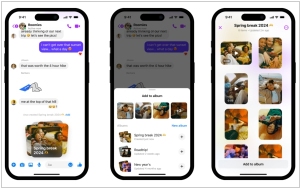
Meta is introducing new features for Messenger users, enabling the creation of shared albums within chats, the transmission of high-definition photos, and the sharing of larger files up to 100MB in size. This update caters to individuals accustomed to sharing albums or HD images via platforms like Google Drive. Previously, users were limited to viewing a list of photos shared in a chat without the ability to organize them; now, they can create albums in group chats, facilitating organization for various occasions such as vacations or family events. To initiate an album, users select multiple photos from the chat composer and tap "create album," or long-press a photo to do so. Additionally, users can add photos to existing albums by selecting the "Add to album" option. Everyone in a chat can view, add, delete, and download pictures and videos within an album, which can be accessed via the "Media" button in the chat interface. This introduction of shared albums fills a gap in Meta's messaging services, as it's not available on platforms like WhatsApp and Instagram DMs, likely making it a welcomed addition for users.
2023. Facebook Messenger is finally adding default end-to-end encryption
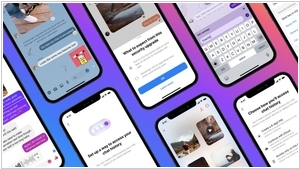
Facebook Messenger is enabling end-to-end encryption as the default setting for all personal messages and calls, marking a significant update along with various other improvements. This development is particularly noteworthy for individuals prioritizing online privacy. While Messenger initially introduced end-to-end encryption as an optional feature in 2016, users were required to actively opt in. After announcing tests for default end-to-end encryption in August, Meta, the parent company, is now poised to roll out this security feature for all users. This means that individual Messenger conversations will be completely private, shielded from unauthorized access, including by Meta itself. The encryption covers both text conversations and video calls, though group chats with more than two participants remain without this added protection, at least for the time being.
2021. Facebook is bringing end-to-end encryption to Messenger calls
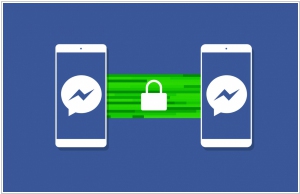
Facebook has expanded the availability of end-to-end encryption (E2EE) to include voice calls and video calls on Facebook Messenger. Since 2016, E2EE has been an option for securing text conversations on Facebook's primary messaging platform. Despite facing pressure from governmental entities to reconsider its plans for end-to-end encryption, Facebook is now extending this safeguard to encompass both voice and video calls made through Messenger. This implies that no one, including Facebook itself, can access or monitor the content of these communications. However, it's important to note that activating encryption is a voluntary action, meaning that without opting in to this new feature, your calls may still be susceptible to unauthorized data access.
2020. Facebook updates Messenger Rooms to take on Zoom
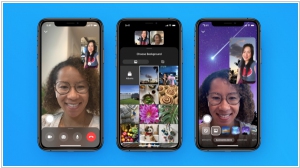
Messenger Rooms, Facebook's competitor to Zoom, is introducing new features to enhance the ease of creating and discovering Rooms, as well as personalizing the Rooms experience. The updated version of Messenger Rooms will prominently display the Rooms to which you've been invited at the top of your Chats tab in your inbox, making them easier to locate. Additionally, the option to create a new Room will be prominently placed in the Chats tab, ensuring its visibility. Various changes have been made to Rooms management as well. You can now create a Room with a default, suggested, or custom activity, set a future start date, and customize your audience selection. Furthermore, the Manage Rooms feature allows you to view, join, edit, or delete the Rooms you have created, as well as invite more people to join an existing Room.
2020. Facebook Messenger's new chat plugin for business websites allows to reach non-Facebook users
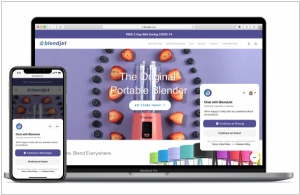
Facebook is simplifying the process for businesses to utilize its Messenger service on their respective websites. Previously, the customer chat plugin required visitors to the website to be logged into Facebook in order to engage in direct conversations with businesses. This requirement limited its adoption. However, with the updated plugin, Facebook is removing this limitation by allowing customers to interact with businesses even without being logged in. A new "continue as guest" option will be provided instead. From the business's perspective, they can continue to leverage all their existing tools to effectively manage conversations with these online users, irrespective of whether they are logged in or not.
2020. Businesses on Facebook can now respond to customers in Messenger
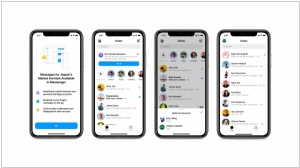
Facebook is introducing a new inbox feature on Messenger, enabling business owners to conveniently respond to customer messages using the same app they use for personal conversations with friends and family. This update streamlines communication for businesses, allowing them to handle all their interactions from a single app. No longer will they need to switch between multiple applications to compose and reply to customer inquiries, which many business owners found to be a frustrating process. However, if preferred, business users can still utilize Facebook's Page Manager app to manage their posts, create ads, access Page insights, and respond to messages.
2020. Facebook announces Zoom-like clone with Messenger Rooms
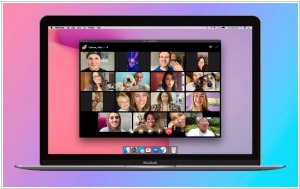
Facebook has introduced a new service called Messenger Rooms to rival Zoom. Messenger Rooms offers a tile-view video chat experience capable of accommodating up to 50 participants. Unlike Zoom, joining a Messenger Room does not require a Facebook account. Moreover, there are no time restrictions on calls made through Messenger Rooms. To ensure privacy, Messenger Rooms provides controls for users to manage who can access their rooms, including the ability to lock or unlock them. If a room is unlocked, anyone with the link can join and share it with others. However, the room creator must be present to initiate the call. With the recent security and privacy concerns surrounding Zoom, Messenger Rooms presents an alternative option for individuals seeking a different video conferencing solution.
2020. Facebook takes on Zoom with Messenger desktop app on macOS and Windows
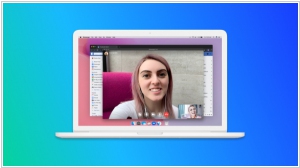
Facebook is set to launch a dedicated desktop app for Messenger on macOS and Windows. With the ongoing global pandemic confining millions of people to their homes, the timing of this release is opportune. It comes at a time when videoconferencing applications like Zoom, Skype, and others are in a race to provide the best remote working experience. The standalone Messenger app offers certain clear advantages, such as the ability to have it in its own window and not having to manage multiple browser tabs. While the features of the standalone Messenger app closely resemble the web-based experience, it does provide the convenience of free, unlimited group video calls that sync seamlessly across both mobile and desktop platforms. Furthermore, standalone apps generally deliver faster performance and enhanced responsiveness compared to browser-based apps.
2020. Facebook makes Messenger for iOS faster and lighter
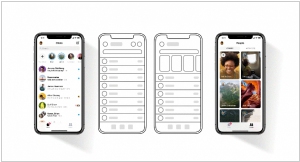
The latest version of Messenger for iOS has been completely rebuilt from scratch, resulting in a smaller download size and more efficient updates. This new version launches much faster than its predecessor, which is particularly beneficial for users who frequently access the app throughout the day. According to Facebook, Messenger now loads twice as quickly as the previous iOS version and is only a quarter of its original size. While some features may be temporarily unavailable due to this redesign, Facebook assures users that it is actively working to reinstate them in the near future.
2017. Facebook Messenger adds plugin for business websites
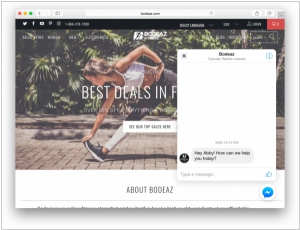
The Facebook Messenger is now expanding its reach to business websites with a new plugin. This innovative plugin enables customers to directly engage with businesses on their websites using Messenger, and seamlessly continue those conversations across various devices such as web, mobile, and tablets. By leveraging Messenger, businesses not only make themselves available on a platform with a staggering user base of approximately 1.2 billion monthly users, but they also gain access to a range of powerful features. These features include payment capabilities, natural language understanding chatbots, and support for rich media content, among other functionalities. Similar to other web chat systems, the Messenger chat plugin appears as a hovering element atop the business's web page and is easily identifiable by the familiar blue Messenger icon.
2016. Facebook Messenger gets group video calling
Recently, Facebook Messenger introduced a new feature: group video calling. This chat application now enables groups of up to six users to initiate video calls directly from their messages. The feature is now available to all users with the latest version of the app. Starting a group call is as simple as initiating a one-to-one video call within the app: by tapping the camera icon located in the top right corner while in a chat, users can begin a video call. Facebook has set a limit of six participants for group video calls, although up to 50 additional participants can join the call without enabling their video once the limit is reached. It's worth noting that Facebook's sibling app, WhatsApp, added one-to-one video calling just last month.
2016. Facebook Messenger adds end-to-end encryption
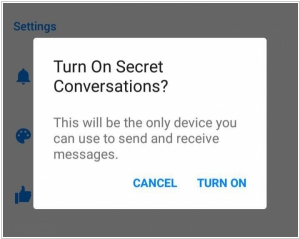
Facebook Messenger now provides enhanced security through its new feature called "secret conversations." By enabling Secret Conversations, your Messenger chats become encrypted, ensuring that only authorized participants can access and decipher the messages. This encryption covers text messages, photos, and even stickers, although videos and GIFs remain excluded from this protection. It's important to note that Secret Conversations do not apply to group chats, and the feature must be activated individually for each conversation. Additionally, Facebook offers users the option to have their messages self-destruct, similar to Snapchat, after a specified period. To enjoy these features, it is necessary to update the Messenger app on your Android phone or iPhone. Unfortunately, there is no information regarding the availability of these features for Windows Phone (or Windows 10 Mobile) users.
2016. Facebook Messenger adds group calls
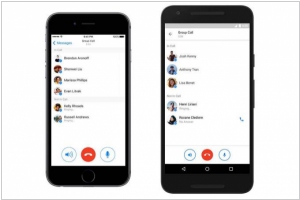
Users of Facebook Messenger can now initiate a group VoIP audio call directly from any group chat. Simply tap the Phone icon, choose the group chat members you want to include, and they will all receive a Messenger call simultaneously. If you happen to miss the initial call but it is still ongoing, you can join the call by tapping the Phone icon within the group chat. Throughout the call, you can view the participants and send reminders to those who have not joined yet. It's worth noting that the maximum number of participants allowed in a call is 50.
2016. Facebook Messenger allowes to build chatbots
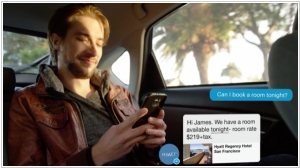
Facebook Messenger is introducing a new feature that enables businesses to provide automated customer support, e-commerce guidance, content, and interactive experiences through chatbots such as Kik, Line, and Telegram, which have their own bot platforms. According to Zuckerberg, by utilizing AI and natural language processing in conjunction with human assistance, individuals will be able to converse with Messenger bots in a similar manner to how they talk to their friends. The Messenger Platform's Send/Receive API allows bots to deliver structured messages containing text, images, links, and call-to-action buttons. This functionality enables users to perform various tasks such as making restaurant reservations, reviewing e-commerce orders, and more. Users can also swipe through product carousels and navigate to external websites to complete purchases. Additionally, a persistent search bar positioned at the top of Messenger assists users in discovering bots.
2015. Facebook launched enterprise messenger
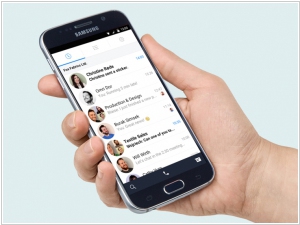
Facebook at Work, the private social network designed for professional communication among colleagues, now offers its own dedicated chat client. Similar to Facebook at Work's version of Messenger, the newly introduced Work Chat app enables individual messaging, group chats, photo and video sharing, voice calls, and the use of stickers within the workplace. The Android version of the app is already available, while the iOS version is currently in development and will be released soon. The enterprise edition of Facebook bears a strong resemblance to the consumer version, encompassing its own website and mobile applications for iOS and Android devices. Employers have the capability to create new accounts for their staff to utilize on the platform, and users can choose to link their personal and work accounts together. The service extends beyond mere communication, accommodating various business needs such as document sharing, discussions, announcements, groups, project collaborations, events, and more.
2015. Facebook Messenger gets free video calls
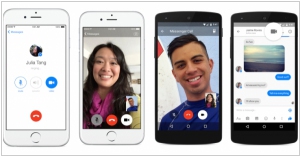
Facebook Messenger has recently introduced free VOIP video calling functionality for iOS and Android users in the United States, Canada, the United Kingdom, and 15 other countries. The aim of this feature is to enable face-to-face connections regardless of the user's location or their mobile network connection. With Messenger, individuals can engage in video chats seamlessly, bridging the gap between a person using a new iPhone with a strong LTE connection in San Francisco and another individual using a low-end Android device with limited 3G coverage in Nigeria. While Facebook initially collaborated with Skype to introduce desktop video calling in 2011, the company eventually developed its own infrastructure for video calls. By expanding this capability to mobile devices, Messenger emerges as a formidable competitor to iOS-exclusive FaceTime, cumbersome Skype, and less widespread Google Hangouts.
2015. Facebook launched dedicated web interface for its Messenger
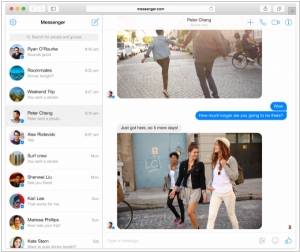
Facebook has introduced Messenger.com, a dedicated chat interface for Facebook Messenger. While you can still send messages from Facebook.com as usual, Messenger.com provides an alternative for users seeking a more focused and productive chat experience, or those who prefer to chat with friends without the distractions of the main Facebook site. The Messenger site offers a clean layout, with a list of your message threads on the left and a spacious white chat window on the right. Most features available on the mobile app are accessible from this interface, including audio and video calls, stickers, and photo sharing. Currently, it lacks some functionalities such as recording and sending audio messages, instantly capturing and sending photos from your webcam, and utilizing the new Messenger platform content sharing apps. However, by separating Messenger from Facebook on the web, the company has the opportunity to introduce additional exclusive features that set it apart from SMS and other messaging applications.
2015. Facebook wants to replace business2customer email by its Messenger
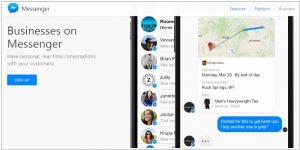
Facebook is revolutionizing customer-business communication by leveraging its Messenger platform. The aim is to address the common dissatisfaction with touch-tone phone tree customer service calls and cumbersome email threads. Instead, people prefer the convenience of asynchronous texting within a unified chat thread. To enable this, Facebook is collaborating with initial partners like Everlane and Zulily to transform the way customers reach out to businesses. For instance, if you make a purchase through Everlane and need to modify, track, or return your order, you can now contact the business through Messenger. Rather than receiving separate emails for order confirmation and shipping updates, you can choose to receive those messages directly in Messenger. Thanks to integration with ZenDesk, customer support can also be provided through Messenger. Businesses that already utilize live chat systems for customer support will have the option to transition their communication to Messenger.
2014. Facebook Messenger adds video messaging
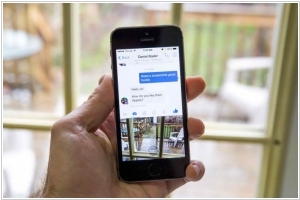
Facebook has recently rolled out an update for its Messenger application on iOS and Android devices, introducing a new feature that allows users to record and send video messages lasting up to 15 seconds. The growing prominence of instant messaging is steadily replacing traditional SMS text messages. Instant messaging applications offer enhanced versatility compared to SMS, as they enable users to share not only words but also images and now videos. Moreover, instant messaging proves to be a more cost-effective option. While SMS charges per message, instant messaging incurs no additional cost beyond your data allowance. Furthermore, if you are connected to Wi-Fi, every message you send is completely free of charge.

